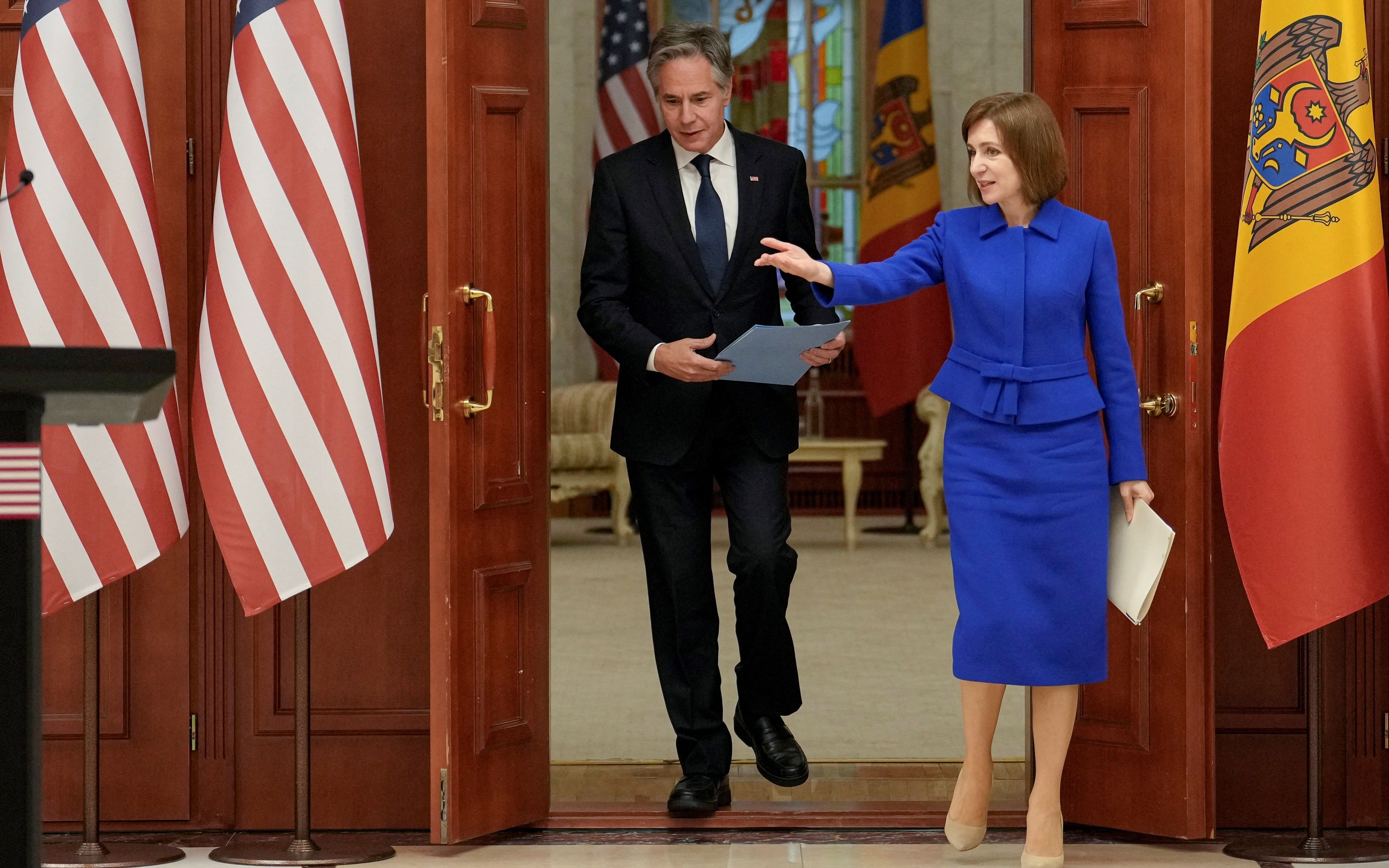Moldova, a small Eastern European country tucked between southern Ukraine and Romania, is set to host its parliamentary elections in October 2024.
These elections will coincide with a referendum on whether Chisinau should join the European Union. Russia, which maintains a modest military presence in Moldova via Transnistria, a Kremlin-backed breakaway region that is internationally recognized as an integral part of Moldova, is alleged to be meddling in preparations for October’s elections.
The potential for Russian interference has sparked a response from Washington hawks who have been drafting plans to “beat the Kremlin in Moldova” by encouraging NATO’s centers of excellence to assist Moldova against any Russian hybrid aggression, deepening U.S.-Moldova defense ties and “solving” the Transnistria issue without Russian participation in diplomatic talks.
While allegations of interference by the Kremlin are likely true, an important question should be asked: Is it Washington’s responsibility to become even more entrenched in Eastern Europe and risk further escalation with Moscow over a country with little security relevance to the United States?
Since Moldova emerged as an independent country after the fall of the Soviet Union, the United States affirmed its commitment to supporting its sovereignty and territorial integrity. This commitment was tested not long after Moldova declared independence in August of 1991 when clashes between separatist Transnistrian forces — including Russian remnants of the former Soviet 14th Army — and Moldovan police led to an all-out military confrontation. The conflict ended in a ceasefire that included provisions for a trilateral peacekeeping force compromising Moldovan, Transnistrian, and Russian units, thus securing Transnistria’s de facto independence.
In the aftermath, Washington has officially supported a peaceful resolution to the territorial dispute, a stance that has historically shaped its approach to the region. But efforts to reach a settlement have gone nowhere since 2003, when one of Vladimir Putin’s Kremlin aides, Dmitry Kozak, succeeded briefly in persuading the Moldovan president to sign an accord that would have unified Moldova as a federation and allowed for the continuing presence of Russian troops in Transnistria. Washington opposed the deal in part because it effectively would have closed the door on future Moldovan NATO membership — precisely the reason Russia supported it.
A recent CSIS report links Chisinau’s future to five factors: Washington’s willingness to provide material assistance to Ukraine and Moldova, whether Ukraine manages to stave off Russian forces on the battlefield, whether Moldova’s pro-Western President Maia Sandu is reelected this fall, whether Moldova’s reform agenda and economic opening with the European Union continues to progress, and whether Moldova can handle an anticipated energy crisis in December 2024. However, as tensions between the United States and Russia have rapidly worsened throughout the Russo-Ukrainian War, now is not the time to “go big” on Moldova, as the report urges.
Rhetoric calling for greater involvement in Moldova is nothing new. Hawkish senators, such as the late John McCain and Lindsey Graham, have advocated for increasing “cooperation with, and support for, Ukraine, Georgia, Moldova, and other non-NATO partners,” including incorporating Moldova and Georgia into NATO. More recently, former national security adviser John Bolton argued last year that “today’s circumstances nonetheless provide a compelling reason for NATO itself to launch efforts to expel remaining Russian forces from Moldova and reduce Moscow’s political machinations, voluntarily or otherwise.”
Regardless of the rhetoric, becoming more directly involved in Moldova’s political affairs would yield juice that is not worth the squeeze. Despite the insistence that Moldova’s geography and desire to become a functioning democracy make Chisinau a strategic interest for the United States, upgrading involvement in Moldovan political affairs may turn the country into another source of escalation between the West and Russia.
In its current state, Moldova is capable of carrying out free and fair elections. Though Freedom House categorized Moldova as “partly free” in its latest annual report, Chisinau scored well in areas such as electing a head of government and other chief national authorities, including parliament. Moldova has achieved this while maintaining constitutional neutrality, which includes avoiding involvement in military alliances. Additional Western interference could be perceived as pushing Chisinau away from its self-imposed neutrality and may not be necessary for Moldova to continue its trajectory of ensuring that its citizens have a voice in how they are governed.
From a security standpoint, Moldova faces little threat of being invaded by Moscow as long as Russia remains entangled in its conflict with Ukraine, according to former U.S. Deputy Assistant Secretary of State for Europe and Eurasia Matthew Bryza. “Russia has no ability now to invade Moldova,” he told Responsible Statecraft. “Yes, it has a military base there. But I think Russia has enough on its plate right now in Ukraine and…unless it prevails in Ukraine, it won’t do something similar in Moldova.
Rather than Washington involving itself more fully in Moldovan political affairs, Europeans should take the lead in working toward a peaceful resolution to Transnistria’s frozen conflict. By formally resolving the dispute, Moldova’s path to eventually joining the EU will be more straightforward. If the EU is unwilling to support Moldova, it should not have accorded candidate status to a country in a territorial dispute with a rogue statelet sympathetic to Russia.
However, Washington can encourage the revitalization of talks of the 5+2 dialogue, which includes Russia, Ukraine, the EU, the U.S., the Organization for Security and Cooperation in Europe, Moldova, and the authorities in Transnistria itself. While resuming those talks may likely prove difficult so long as the Russo-Ukrainian War continues, all parties have a stake in demonstrating their good faith in working to forge a settlement that puts the Transnistria issue to rest.
Political affairs in Moldova, including the Transnistria territorial dispute, have not seriously piqued Washington’s interest for a good reason: they are not critical to U.S. national security. Washington must not make Moldova the next proxy war with Russia. Ultimately, Moldova’s journey to becoming an EU member is not worth edging the West and Russia toward a new and more dangerous level of escalation.
















